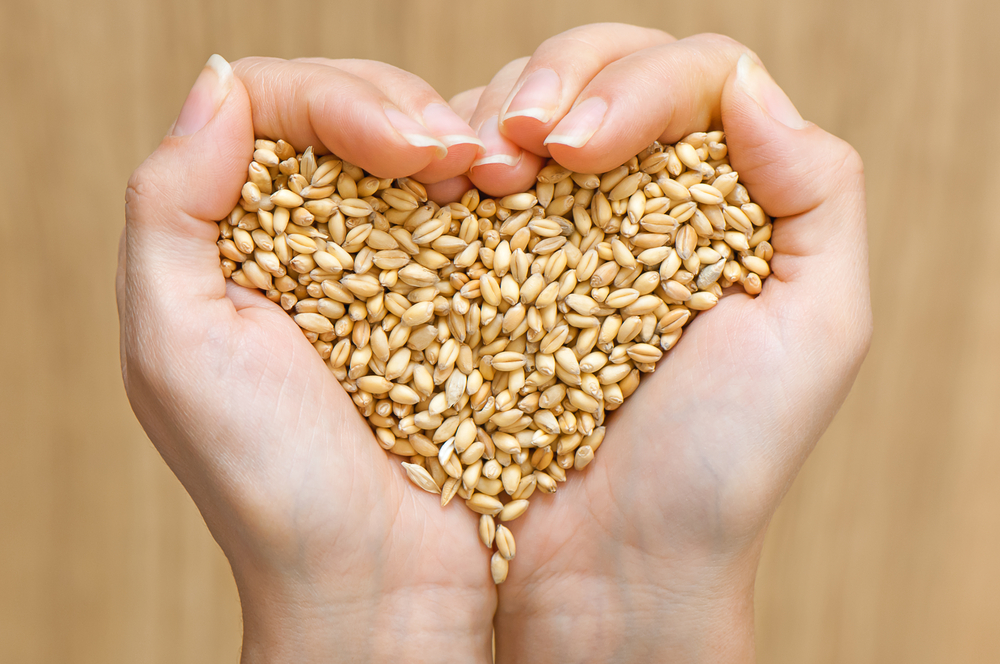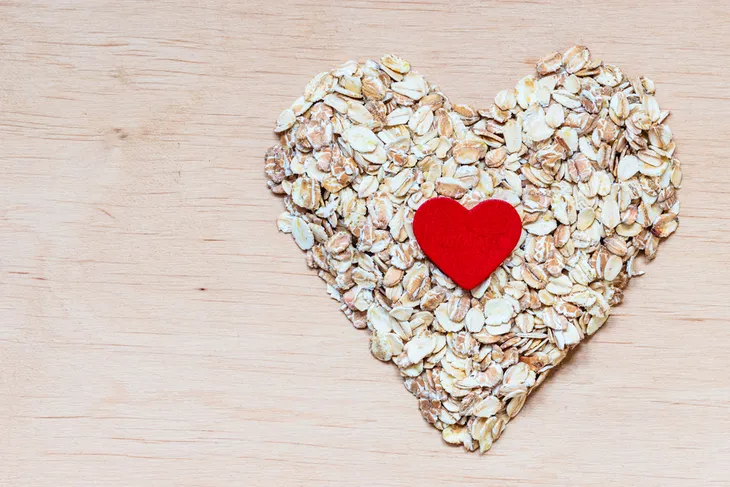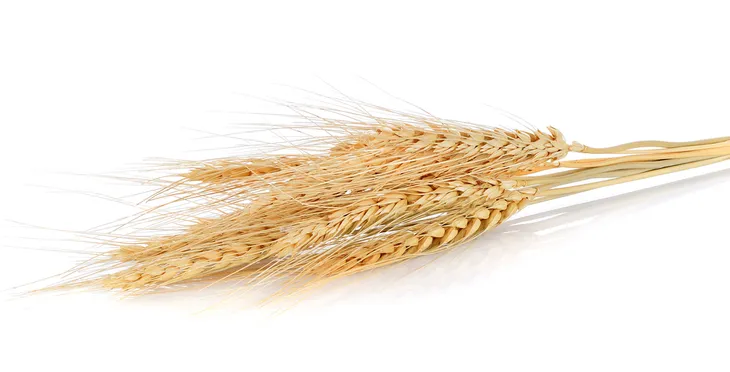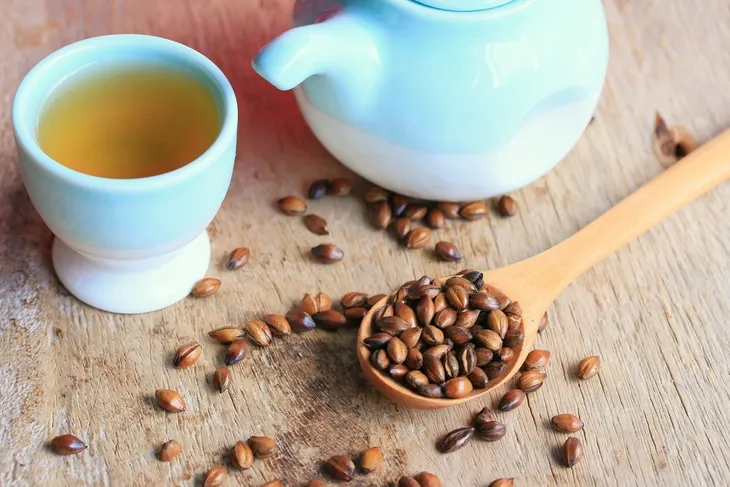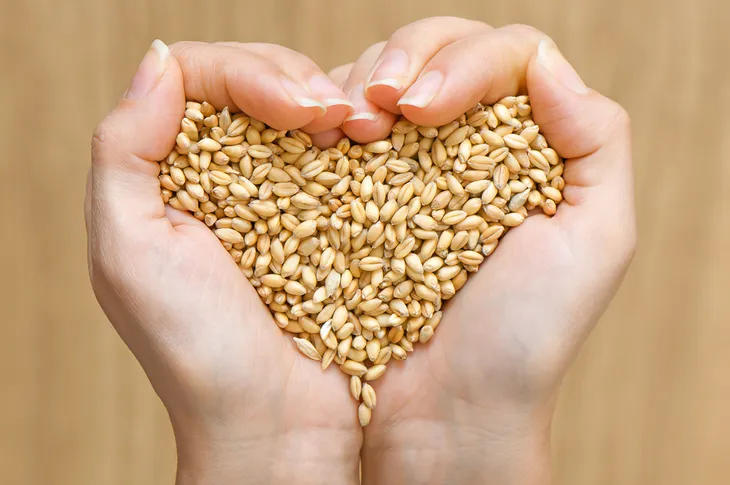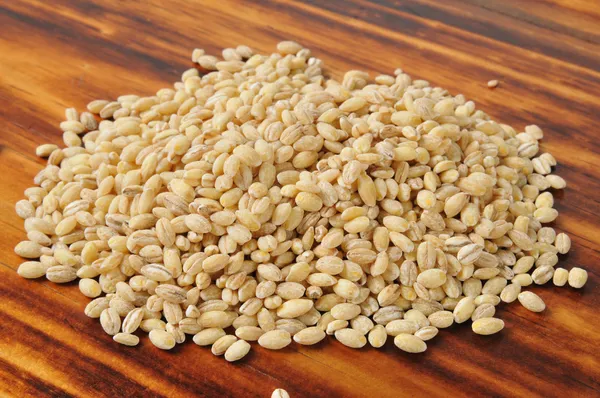Beer lovers rejoice – barley, which most beer is made from, has many positive health benefits (as long as you drink in moderation). But aside from beer, barley is called the “King of Cereals” and is popular in soups, salads, stews and even curries, notes StyleCraze.
Barley can apparently benefit everything from your skin and hair to your unborn child and your overall health, so let’s take a closer look at 13 ways barley goes with the grain of a positive diet…
Taking Off Some Pressure
The same source explains that “regular consumption” of barley can help stabilize your blood pressure, while lowering blood cholesterol levels that can contribute to cardiovascular diseases.
It points to a 2006 study published in the Journal of the American Dietetic Association that claims whole grains, “high in either soluble or insoluble fiber,” can help you maintain a healthy weight.
Good to The Bone
There’s more to barley benefits than what you can see on the surface – a site called SaveOurBones.com explains that the silicon content of barley is positive for bone health.
The source also touts other benefits of barley, including having a high level of manganese (that benefits connective tissues), being a “rich source” of copper and selenium (the latter which is important for thyroid function), and also being a good source of phosphorus (which helps bones be flexible enough to avoid breakage).
Cancelling Cancer?
It won’t completely take away risk of cancer – nothing will – but thanks to that mineral called selenium we mentioned earlier, it helps “detoxify some cancer-causing compounds in the body,” according to MedicalNewsToday.com.
It continues by explaining selenium may help slow down tumor growth rates, and improve immune response to infections. “Fiber intake from plant-based foods is associated with a lower risk of colorectal cancer,” it adds. (Here are some more Everyday Foods That Can Help Prevent Cancer).
Diet Studies in the Field
A 2016 article from Glamour.com explains the ancient grain has been shown to help people shed pounds – specifically in study by the Lund University in Sweden. The study had participants consume either barley kernel-based bread or white bread 3-times a day for 3-days.
Even with a short study period, there were some positives found in the barley group. The researchers noted those who are barley bread had boosted metabolism for up to 14-hours, lower blood sugar and glucose levels, and more controlled appetite than the white bread team.
It Deals With Diabetes
The same study we mentioned earlier from Lund University also shows that barley is a better choice for diabetics than refined grains, mostly thanks to its ability to control sugar and glucose levels in the blood.
The university notes that an earlier Swedish study shows that dietary fibers found in barley kernels promote the growth of a gut bacteria called Prevotella copri, “which have a direct regulatory effect on blood sugar levels and help decrease the proportion of a type of gut bacteria that is considered unhealthy.”
Barley Boosts Immunity
Aside from potentially lowering cancer risk, you may have a better chance at fighting off common illnesses thanks to the contents of barley grass – more specifically, the vitamin C and copper – according to AliveByNature.com.
“They increase the body’s resistance to infections, like the common cold and cough,” it explains, also noting they help avoid fatigue. Consuming barley often “balances the optimal production of the body’s immune cells,” it adds. (Here are more Foods That Strengthen Your Immune System).
It Goes With the Flow
Livestrong.com lists barley as a way to limit the symptoms of a urinary tract infection (UTI), which can be painful and cause problems eliminating urine. One way to treat this infection is by doctor-prescribed antibiotics, but there are other non-medical ways to address the problem.
The source says barley, a grain that is actually a member of the grass family, can be used to make a tea that can soothe a UTI. “Barley tea can be used as an effective diuretic – meaning it helps promote the production of urine,” it adds. However, it adds that there’s no “strong scientific evidence” to prove barley can cure a UTI, and that serious infections should be dealt with by a doctor.
It Has Joint Benefits
The Arthritis Foundation itself puts barley high on its list of grains that can reduce inflammation, which can make your joints feel more painful and stiff. It says to avoid refined grains (think of white bread and cookies), while flocking to whole grains like barley.
The source says barley is an “ideal addition” to soups, stews and risotto dishes, and it also has the ideal benefit of having 6-grams of fiber per cup that will aid in digestion.
An Answer to Baldness?
If your hair is thinning, perhaps you can up your barley intake rather than looking for prescription medications or miracle cures. LifeHack.org explains that among the many benefits of barley are hair loss prevention and even hair growth.
Iron and copper in barley are apparently responsible for prevention of hair loss, while thiamin, niacin and Procyanidin B-3 in the grain encourage hair to grow. For those lucky enough to have a full head of hair, barley keeps it looking healthy thanks to “vital minerals, vitamins, and antioxidants,” adds the source. Oh, and it is also touted to help you restore your natural hair color, as copper helps produce the required pigment.
The Benefits Will Surface
The same source explains that while your hair may look better from barley, so will your skin. It says the vitamins and minerals in the grain will reduce inflammation in your body. “You know the expression: healthy body, healthy skin,” it says.
The selenium content helps preserve skin elasticity, which contributes to the youthful look of skin. “Selenium also improves many functions in your body, which are often reflected by your skin,” it adds. It apparently also promotes a “pleasant skin tone” by tightening the skin and eliminating toxins.
Good Grains For Veins
Medical News Today explains that barley and your heart get along quite well, thanks to its high vitamin B6, fiber and potassium content, and lack of cholesterol. Lower “bad” cholesterol in the bloodstream is linked to a lower risk of heart disease – and beta glucan fiber found in barley lowers this “bad” cholesterol (known as LDL) by helping flush it out of the body through excretion, it adds.
It adds that vitamin B6 and folate in barley help prevent a buildup of homocysteine – an amino acid that is associated with blood clots at higher levels – which can damage blood vessels and lead to heart troubles.
Breathe Easier with Barley
StyleCraze explains that barley can help reduce the risk of a child (and even an infant) developing asthma. It points to a 2013 study of early grain introduction involving almost 3,800-“consecutively born infants” in Finland.
The study found that introducing barley to infants at around 5-months of age “seemed to reduce the risk of developing asthma in early childhood.” For the record, we don’t recommend you give your child barley in the form of beer.
Just Grow with It
Speaking of infants, the same source explains that barley is good for pregnant women (again, don’t drink it as beer). It says barley water each day during pregnancy “works like magic to promote better digestion and ease morning sickness.”
Because of barley’s ability to regulate blood sugar, it’s also an ally in preventing gestational diabetes, and its diuretic nature will help prevent water retention during pregnancy, adds the source. The nutritional benefits of barley will be passed on to your baby. “Incorporating whole grains like barley in your regular diet enables both of you to receive a wide range of nutrients and fiber during pregnancy,” it notes.
